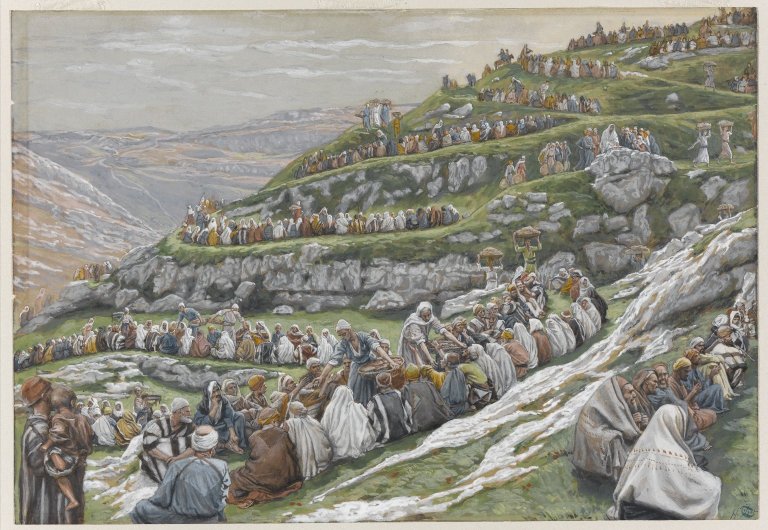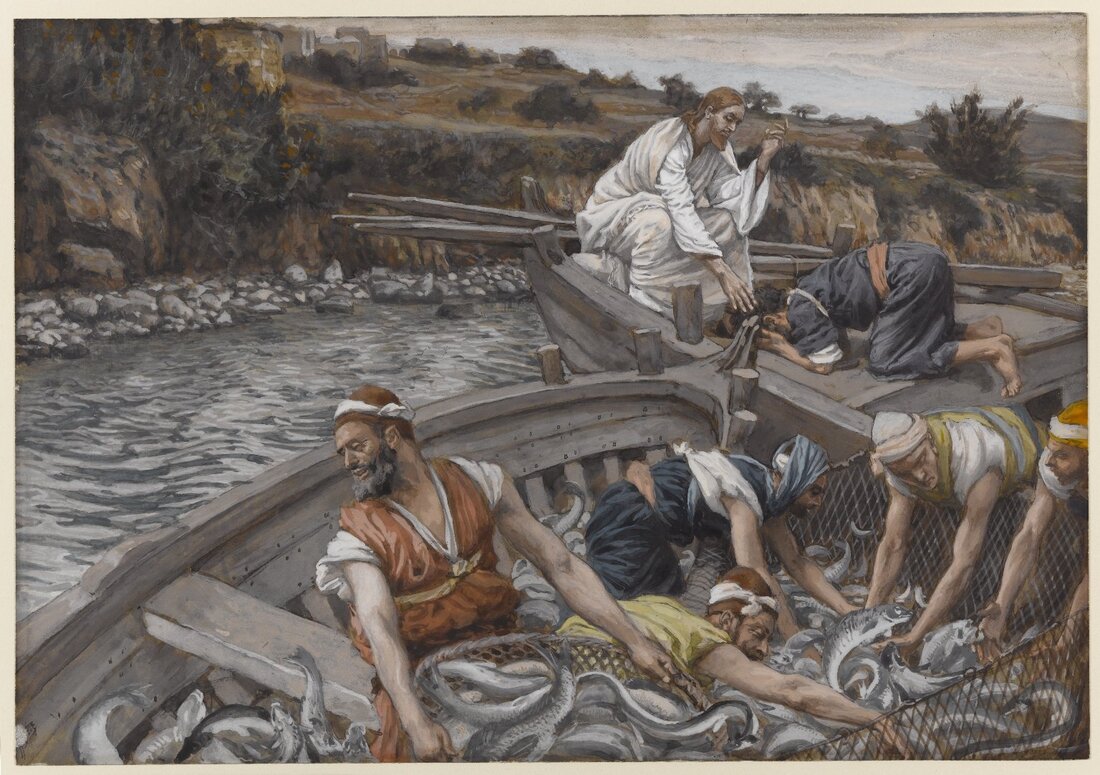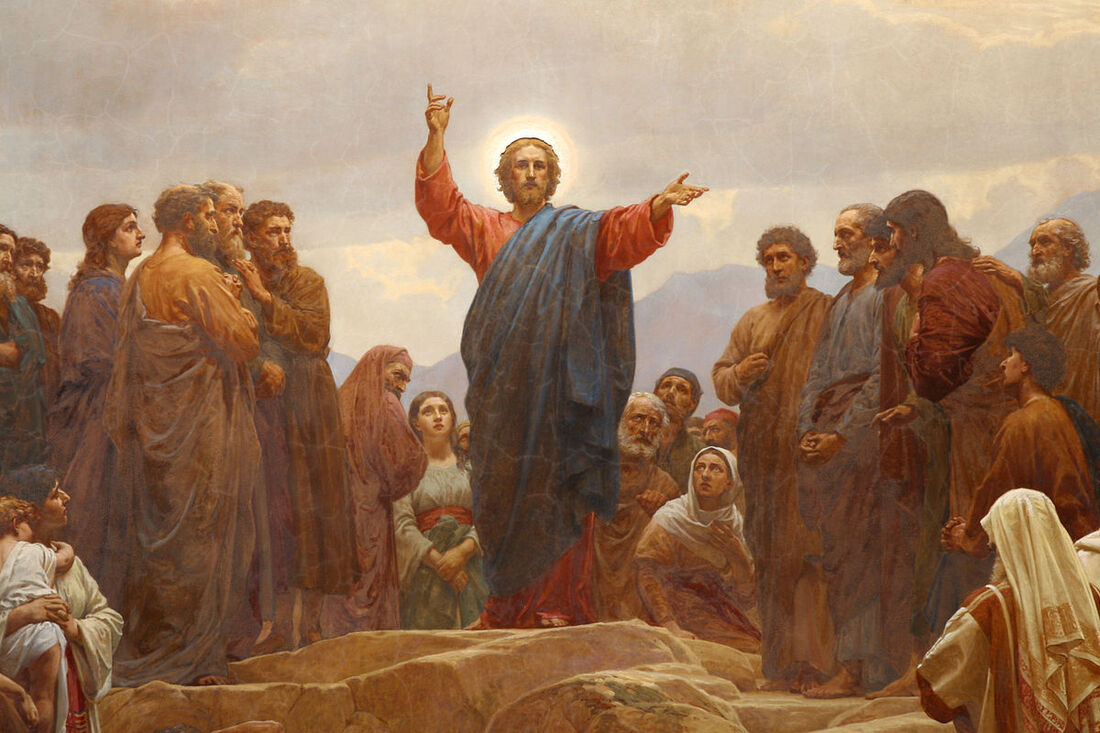Mark 8:1-9
July 26, 2020
Our Lord Jesus fed 4,000 people with just seven loaves of bread and a few small fish. St. Matthew tells us that the 4,000 didn’t even include the women and children. This miracle shows us that Jesus is God, who opens his hands and satisfies the desires of every living thing. This shows us that God will provide for our bodies. As the birds of the air need not worry, neither do we. Our heavenly Father knows what we need and he will provide for us. This also teaches us that we should seek first the Kingdom of God and his righteousness, because God will add all the rest of our needs to us. Man shall not live by bread alone, but by every word that comes from the mouth of God. God cares for our bodies so generously, so that we will not worry but will look to him for our spiritual and eternal needs.
Yet, didn’t we learn this very lesson not too long ago? Indeed, we heard nearly an identical story just four months ago when Jesus fed the 5,000 with just five barley loaves and two small fish and they had twelve baskets left over. Is this an accidental repetition? Perhaps Jesus fed a large crowd of people; some said it was 5,000 and others said it was 4,000, so we are really just reviewing the exact same story? No. In fact, Jesus fed a crowd of 5,000 men and a short time later he fed another crowd of 4,000 men. Both St. Matthew and St. Mark report both of these miracles in their Gospel accounts and Jesus reminds his disciples of both of these feedings later on in this same chapter of Mark.
Yet, why do Matthew and Mark record both of these miraculous feasts? St. John only records the feeding of the 5,000. Aren’t these two miracles similar enough, that they could have recorded just one or the other. Certainly, Jesus performed many other miracles that are not listed in the Gospels (John 21:25). And why did the ancients deem it necessary to record both of these feedings in the lectionary, so that we hear them both every year?
Well, certainly the main emphasis of both of these stories is worth repeating. God will provide for your physical needs and he wants you to seek from him even more your eternal spiritual needs. Yet, as similar as these two stories are, they are not identical.
The feeding of the 5,000 was primarily a feeding of Jews. Jesus fed them with five loaves of bread. The five loaves of bread symbolized the five books of Moses, which make up the Torah. There were twelve baskets of fragments left over, which symbolized the twelve tribes of Israel. Even the Greek word for basket was distinct from the word for basket used with the 4,000. These baskets referred to containers used in Jewish ceremonies. This feeding of the 5,000 Israelites demonstrated that Jesus is the fulfillment of the prophecy from Deuteronomy 18, which stated that God would raise up a prophet like Moses from among the Jews. As God fed the people of Israel bread from heaven in the wilderness through Moses, so now Jesus, who is greater than Moses feeds God’s people.
The feeding of the 4,000 is different. Jesus uses seven loaves of bread and seven baskets of bread are left over. The number seven can symbolize completeness. It could also represent the seven Gentile nations around Israel. The place where this feeding takes place is populated with many Gentiles, as shown right before this miracle when Jesus meets the Canaanite woman as he left the region of Tyre and Sidon. So, while the feeding of the 5,000 shows that Jesus is the Messiah promised to the Jewish people, the feeding of the 4,000 shows that Jesus did not come only for the Jews, but for people of all nations.
This of course is wonderful news for us and all people around the world. You do not have to follow your genealogical line to discover whether God’s mercy is meant for you. We marvel that God fed the nation of Israel in the wilderness for forty year without them putting a plow to the ground or planting any seed. Yet, we should also mark that God continued to provide food for all nations around the world, clothing and sheltering them as well. When God cares for the body of people, he shows that he cares for them. It is a sign that he desires also to save their souls. You won’t trust in a god for your eternal salvation if he is unable to provide for you temporal needs. So, God provides for the needs of all people everywhere, to show his desire to save both their bodies and souls forever.
Of course, this lesson is consistent with all of Scripture. God told Abraham, the father of the people of Israel, that in his seed all nations of the earth would be blest. And St. Paul repeatedly declares that God shows no partiality and makes no distinction between Jew and Gentile, but rather all are children of Abraham and of God himself through faith in Jesus. And by feeding this great crowd of Gentiles, Jesus shows that he comes to feed the bread of life to all peoples everywhere. The number four represents the four winds, which go across the whole earth. The number 1,000 represents completeness. By feeding 4,000 Gentiles, Jesus shows that God has compassion on all people and desires to satisfy their every need.
If you do not believe that God will satisfy the wants of your body now in this temporal life, you will never believe that God will provide eternal life for you. If God cannot do a little work, he certainly cannot do a mighty work. So, with every meal you eat that fills your belly, God wants to remind you that he desires to feed your soul as well. When you put on your clothes and fall asleep under your roof, he wants you to know that he cares for you beyond what you can see or feel. Because, it is not food for your belly or clothes for your body, which are your greatest need, but the teaching of Christ, which gives you eternal life.
After Jesus fed the 5,000 Jews the Jews searched for him, because they wanted more bread. They were disappointed when Jesus wanted rather to feed them the Bread of Life from heaven, which gives eternal salvation to all who feast on him in faith. This is the curse of our mortal bodies. We focus on the temporal needs of the body and fret over them, as if our fretting ever gave us a morsel to eat, and we ignore the greater gift God seeks to give us. Likewise, shortly after Jesus fed the 4,000, he told his disciples to beware of the false teaching of the Pharisees by telling them to watch out for the leaven of the Pharisees. His disciples began to bicker, because they had only packed on loaf of bread and did not have enough for everyone. Jesus marveled at their lack of faith. They had just witnessed him feed a crowd of 5,000 and then a crowd of 4,000 with just a handful of bread, yet here they worried about not having enough bread. Jesus did these signs, so that they would focus on his teaching rather than worry about their next meal! So difficult it is for us to focus on what is most important and stop fretting over that which God has already taken care of.
And we need to learn this lesson today. What should you be most concerned about today? Money to pay your bills and feed your family? Your job? The economy? Our nation? What you will eat, wear, and where you will live? Has God not already shown you over and over and over again that he will provide all these things for you? What then does God want you to be concerned for? Watch out for the leaven of the Pharisees. Beware of false teaching. Make sure that you are learning the pure word of God. That is your most pressing need. It is always your most pressing need. The Bread of Life from heaven will be lost if you follow false teachings invented by men. That you cannot afford to lose. But the food you need for your body? Don’t worry about that. God already knows how he will provide that for you, as he has already shown you many times before. Sure, he may make you wait as the crowd waited three days before Jesus satisfied their physical hunger. They desired more the food for the soul, and for that they were rewarded.
The leaven of the Pharisees covers up Christ Jesus and his work of salvation for you. The Pharisees focused on their own outward works instead of trusting in the mercy of God promised in his Son. They despised the sacrifice Christ made for the sins of the whole world. As Jesus told his disciples to watch out for this leaven, which will poison the loaf and make it no good, so he tells us today to beware of false prophets and their teaching. Beware of anything that covers up Christ Jesus and distracts you from him.
It is common today to try not to focus on the different teachings of different groups, but rather focus on how we all love the same Jesus. Some even go so far as to say that as long as we believe in God, that it doesn’t matter what else we believe, claiming Christians, Muslims, and Jews worship the same God. But such simplifying of religion does not reveal Christ as the only Savior, but covers up him and his work. It puts a muzzle on Jesus, so that we cannot learn from him. And since not everyone can agree on what Jesus has done, they focus not on Jesus’ work, but on their own works. The mission of the church is then changed into carrying for people's bodies instead of carrying for people’s souls. Now, Christians should certainly help to provide for the needy. As God has been generous to us, so ought we to be generous to others. But the mission of the Church is to feed the souls of sinners. Only the Bread of Life, Christ Jesus, who gave himself as a sacrifice for all our sins can feed the souls of the world.
To listen to Jesus and to learn from him takes faith. You must believe and trust that God will provide for your physical needs, so that you look to be fed spiritually as well. And you must trust that the words that Jesus says are true and important for you to believe and confess. In this lesson, Jesus shows that God will always provide for the needs of our body, even if we must wait for him. And he shows us that our greatest need in this life is to listen to him, to believe what he says, to trust in his promises, and to pay attention to reject any teaching that rejects or covers up Christ. If we learn to so trust in Jesus, we will find that we will be satisfied in both body and soul. Amen.



 RSS Feed
RSS Feed